- Home
- Member Features
Member Features
Questions for PLATO Leadership
This article was published in November 2022
Question: How does PLATO compare in cost to other organizations?
Answer from Michael Stevens, Former PLATO President:
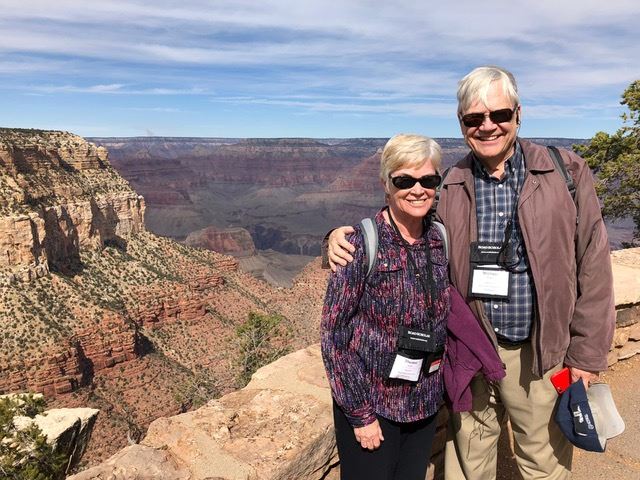 PLATO is one of hundreds of Learning In Retirement groups (LIR) around the country and is one of the most affordable. Members pay a $60 annual fee, which allows them to take as many courses and lectures as PLATO offers. A survey of other LIRs in urban areas in Wisconsin illustrates the variety of costs. In comparison, PLATO Madison annual fees are significantly less.
PLATO is one of hundreds of Learning In Retirement groups (LIR) around the country and is one of the most affordable. Members pay a $60 annual fee, which allows them to take as many courses and lectures as PLATO offers. A survey of other LIRs in urban areas in Wisconsin illustrates the variety of costs. In comparison, PLATO Madison annual fees are significantly less.
I’ve looked at LIRs in Green Bay, Kenosha, Milwaukee, and Waukesha. Their annual membership fees range from $45 to $140. However, except for the one with the $140 annual fee, all have additional charges for attending courses and lectures. Lecture fees range from $10 to $20, while course fees range between $20 and $75. Two of the groups have a mixture of free and for-fee courses.
With these varying fee structures, how do we compare them? Let’s assume that a PLATO member attends two courses and one lecture in the fall and does the same in the spring. Remember, while some members do more and some do less, the fee always is $60. How does that compare to what a member of another LIR group would pay who has the same rate of participation?
|
Name |
Member Fee |
Course Fee |
Lecture Fee |
Annual Total |
|
PLATO |
$ 60 |
$ 0 |
$ 0 |
$ 60 |
|
Green Bay |
$140 |
$ 0 |
$ 0 |
$140 |
|
Kenosha |
$ 50 |
$ 70 |
$ 35 * |
$155 |
|
Waukesha |
$ 65 |
$ 80 |
$ 40 |
$185 |
|
Milwaukee | $ 45 | $140 | $ 20 | $205 |
|
|
|
|
* Assumes member attended half free and half paid events.
Hands down, PLATO offers a great value.
Michael Stevens served as PLATO president from 2018 to 2020 and currently offers a PLATO course. He holds a Ph.D. in history from the University of Wisconsin-Madison and served as State Historian and as a Division Administrator at the Wisconsin Historical Society before his retirement in 2013. Stevens has been married for 47 years to Therese Stevens, who is PLATO’s course planner; the couple has three daughters and three grandchildren. He continues to write history, and the most recent of his 15 books, The Making of Pioneer Wisconsin: Voices of Early Settlers, was published in October 2018.Author Gets First Book Published with Assistance of PLATO's Writer's Workshop
This article was published in October 2022
.jpg) A Wisconsin native, PLATO member Tom Sieger recently published his first book, Elegy to Woodstock, Wisconsin, and the Decline of the Family Dairy Farm. During the process of writing this novel, Sieger found PLATO’s Andy Millman and his Writer’s Workshop course a vital tool in writing and rewriting his book.
A Wisconsin native, PLATO member Tom Sieger recently published his first book, Elegy to Woodstock, Wisconsin, and the Decline of the Family Dairy Farm. During the process of writing this novel, Sieger found PLATO’s Andy Millman and his Writer’s Workshop course a vital tool in writing and rewriting his book.
“Andy was a stalwart of support and gently facilitated the workshop meetings, as we read and reread the chapters of my book,” said Sieger. “I want to sing the praises of Andy and his class. It is remarkably helpful.” In fact, Sieger enjoys reading and responding to other writers’ works in Millman’s class, as well. He writes mostly fiction, but also makes an occasional foray into poetry, too.
Aside from the PLATO class, Sieger took online writing instruction through Coursera, Wesleyan University, and UC Davis. But, to him, what made the PLATO class so beneficial is personal interaction with the course coordinator and input from other writer/participants.
Sieger grew up in LaCrosse in the driftless area, and loves the landscape. “I still drive through that land and marvel at the beauty.” His career in public health took him to the east coast for ten years, but he and his wife, Myrt (also a PLATO member), returned to Wisconsin to raise their two daughters. They now have four granddaughters and still own a parcel in the West Pine River Valley they share with them, although the Siegers live in Madison, now.
As a child, Sieger’s grandmother took him out to the farm to spend the summers and he credits her for his interest in writing about Wisconsin’s farming communities. “I would send this message to all grandparents: Don’t ever underestimate the influence you have on your grandchildren,” he said.
That grandmother’s influence continues to percolate as Sieger considers the possibility of writing his next book on how Wisconsin came to be America’s Dairyland. He is researching how pasteurization of milk, successful government regulations in the dairy industry, and good marketing combined in establishing dairy farming as a way of life in the state.
As he continues to engage in PLATO’s Writer’s Workshop, he emphasizes what a motivator the class is to him. He waited until retirement to move from technical writing to fiction writing and finds PLATO a robust community to develop his skills.
- EDIE URNESS-PONDILLO, MANAGING EDITOR OF THE AGORA
Meet PLATO’s New Board President, Rod McKenzie
This article was published in September 2022
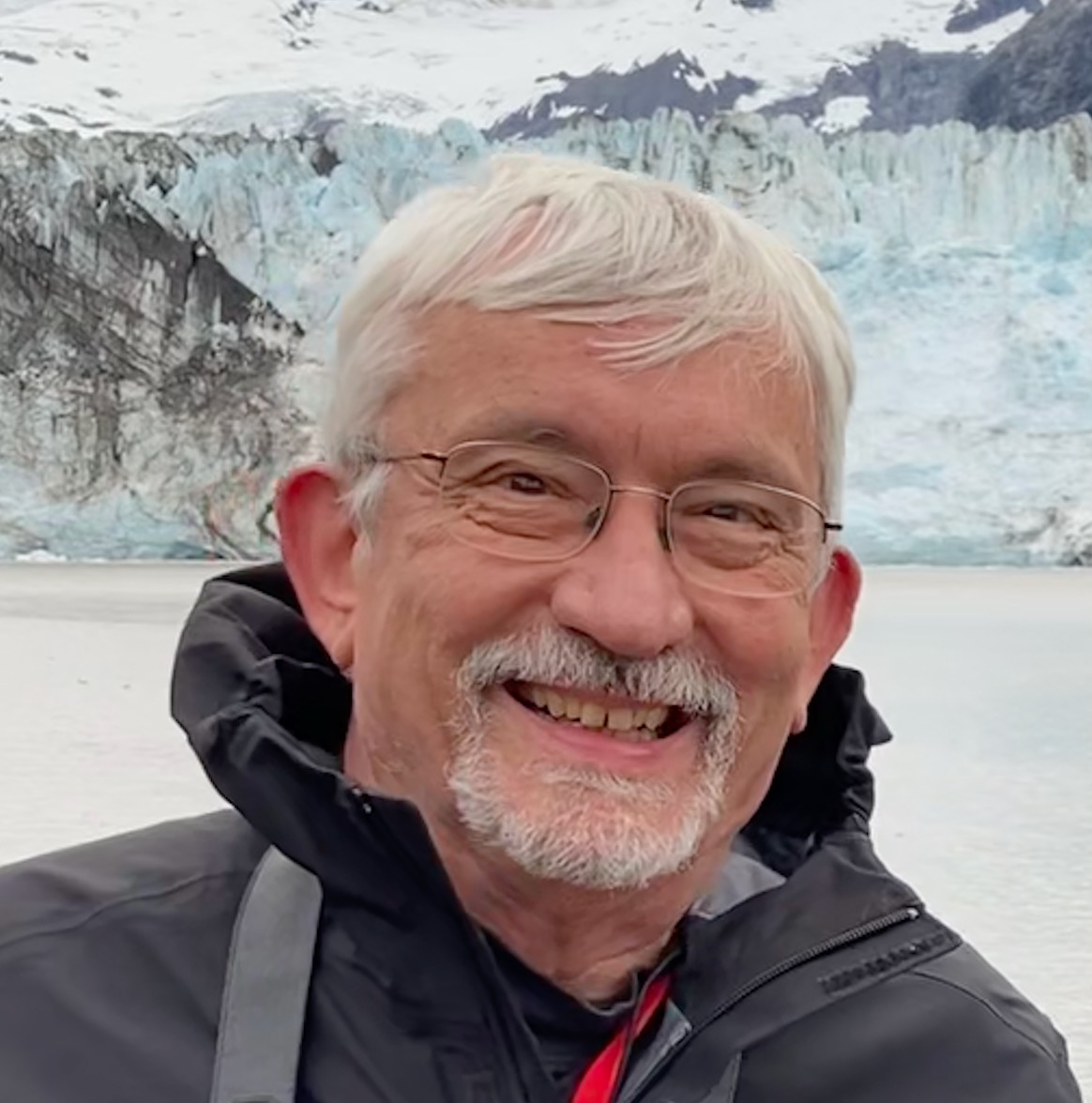 “My hope is that we will better serve those we do serve. And that we will grow our involvement in the community to serve potential members not currently being served,” said Rod McKenzie who is beginning his first term as PLATO’s Board president.
“My hope is that we will better serve those we do serve. And that we will grow our involvement in the community to serve potential members not currently being served,” said Rod McKenzie who is beginning his first term as PLATO’s Board president.
Rod assumed responsibility for the PLATO board in July and will serve as President for two consecutive one year terms. He was Vice President of the board in 2020 and 2021 and a member of the Board of Directors since 2019.
Rod leads the organization in a post-pandemic period when it is anticipated that many in-person activities will be resumed. The experience PLATO gained delivering online courses during the past two years could have a lasting impact on PLATO offerings in the future.
“We have rich course content and we’ve learned some things during the pandemic about offering courses virtually, thereby extending our ability to reach people,” Rod said. “We can continue to do that where it makes sense but also focus on in-person activities when things just can’t be done virtually.”
Rod’s interest in PLATO began with his participation in several courses focused on the experiences of disadvantaged populations including Blacks, Hispanics, Muslims and Indigenous Peoples. That passion to learn how to contribute to improving the lives of others led Rod to the leadership of PLATO’s Fund Development Committee which provides scholarships to returning students at UW, the Odyssey Project, and grants to organizations and service groups in Madison. The committee’s work identified organizations like Maydm which supports girls and women of color in STEM subjects, and recently CLIMB USA which gives Black youth and families finance and investment education opportunities.
Rod is no stranger to volunteering. He recently returned from an ASP (Appalachia Service Project) mission trip with a church youth group helping restore parts of a trailer home for a family in West Virginia.
Rod supports his daughter Christy’s food ventures, Pasture and Plenty, that creates weekly meal kits, and the MakeShop, a kitchen incubator for women and people of color.
Rod grew up in Southern California, graduated from the University of California-Irvine with a degree in French Literature and earned his Master’s degree in Materials Science at UW. While in graduate school in Madison Rod literally met the girl next door who would become his wife, Paula.
Rod spent most of his professional life working at Ray-O-Vac in Madison where he retired in 2015 as Director of Materials Research.
Rod and Paula have four daughters and 10 grandchildren.
Questions for PLATO Leadership
This article was published in August 2022
Question: How are PLATO courses selected and who are the course coordinators?
Answer from Therese Stevens, PLATO Course Planner:
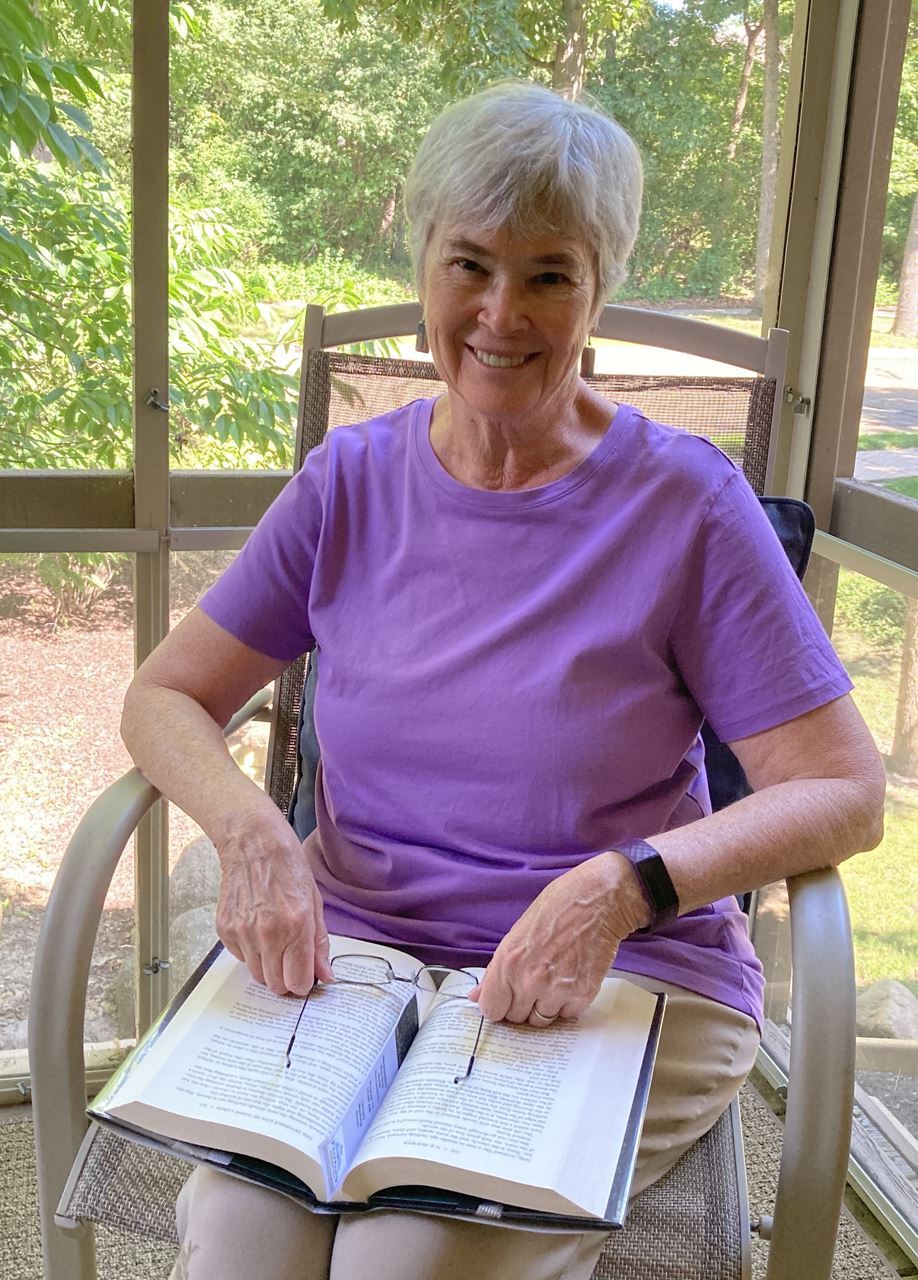
We are fortunate to have very dedicated and enthusiastic people who share their course ideas with our Curriculum Committee. We don’t have to seek out course coordinators. They come to us. We get wonderful proposals that cover a broad range of member interests. Our coordinators include both those who can share strong expertise in a topic and those with an interest in exploring a topic together with course participants.
We refer to course leaders as coordinators rather than teachers. When they propose a course, they complete a proposal, which includes course content, why they are interested in leading the course, and coordinator background. The Curriculum Committee reviews the proposals and gives support to coordinators, including assigning a liaison to answer questions and arrange course location if held in-person.
While several of our course coordinators are experts in their course topics, many coordinators are not experts. They are enthusiastic about their topics, and have researched their subjects extensively. Some courses focus on facilitating participant discussion or guest presentations by others. Examples of this fall’s courses falling into that category include ones on biographies, travel experiences, historical events, scientific discoveries, global affairs, and current events.
For those courses requiring expertise in a subject area, some coordinators are former teachers or professors who offer topics related to what they used to teach. An example of this would be Allen May, a retired broadcast journalism and media law professor who will teach “First Amendment Freedoms and Limits in an Era of Incitement and Hate Speech.” Heather Williams, an artist whose goal is to help people use drawing to better understand themselves, will be teaching three courses this fall including Non-dominant Hand Drawing. One of our ongoing programs is Writing Workshop, coordinated by published author Andy Millman in which participants share their work for colleague comment. “Truth Decay” is the topic of a course by PLATO board member Jack Mitchell, retired professor, former member of the National Public Radio Board, and first producer of the NPR radio program All Things Considered. “Conversations in Global Spirituality” will be coordinated by former pastor Howard Bowman and his wife Jeanne, and “Five Flemish Painter Profiles” by former art professor Mary Em Kirn.
An example of a coordinator who has extensively researched his interest is Daryl Sherman, who offers ongoing courses on the Civil War and has a personal library of a thousand books on the Civil War.
I wish I could list them all!
- Therese Stevens, PLATO Course Planner
Therese Stevens is a ten-year PLATO member and member of the Curriculum Committee since 2014. A former elementary and middle school teacher in Milwaukee and Madison, she now volunteers as an adult tutor. Hobbies include reading, puzzles, walking, and crafts. She, with husband and frequent course coordinator Michael Stevens, have three adult daughters and families living in Paris, Pittsburgh, and Denver.
PLATO Member Tim Otis Does It All!
This article was published in July 2022
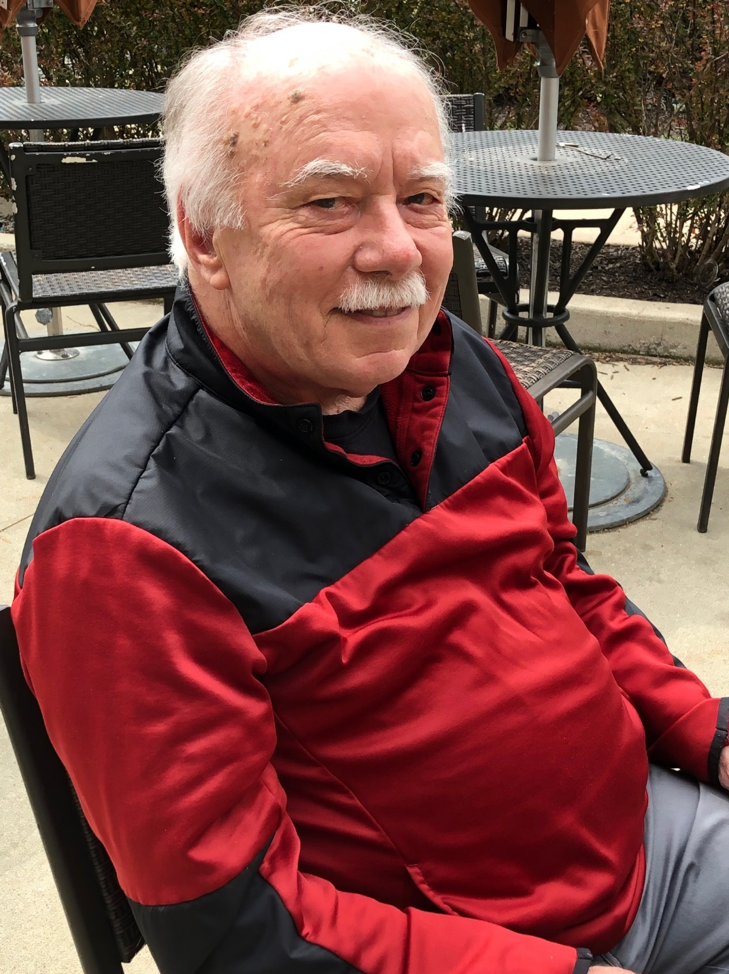
The picture of a PLATO member fully engaged and continuously contributing, TIM OTIS has done it all. He has served as President, done 6 years as Treasurer, and been a member of and/or Chair of every PLATO Committee except Curriculum. And he has coordinated a myriad of courses. He has been active in the extreme since he joined PLATO in 2007.
Tim came to Madison in 1976, after being recruited to develop an outpatient substance abuse/mental health outpatient program as part of a large not-for-profit community based mental health center. (Now known as Journey Mental Health Center) Tim rose through the ranks before retiring as Executive Director in 2005. Following a short stint with the Madison Senior Center, where he first heard of PLATO, Tim began his PLATO “career.” During his early years he was actively involved in PLATO incorporating as a 501 (c)(3) corporation, in the first strategic planning process, the creation of the PLATO Development Fund and of the Diversity Committee.
As a course coordinator Tim has covered such topics as “The Sixties,” “How to be an Anti-racist,” “Authoritarian Governments vs Democracy,” “1968,” “The U.S. Post WWI,” and several courses focused on Bob Dylan including “Hidden Gems: Lesser-Known Songs of Bob Dylan” scheduled for this summer. According to Tim, he is not and never was an expert in any of these subjects – he just had an interest and creating a course was a good way to learn!
Tim lives on the west side of Madison with his wife, Mary Tierney, a retired social worker. He has three grown daughters and one son. Given his long term, in-depth involvement with PLATO Tim was asked how he saw the future of PLATO. “We need more communication with members to re-inspire engagement following the pandemic. There is so much talent and knowledge within the membership, we must be sure to keep people actively involved. PLATO has certainly enriched my retirement years!”
PLATO Story as told by Oakwood Village
This article was published in June 2022
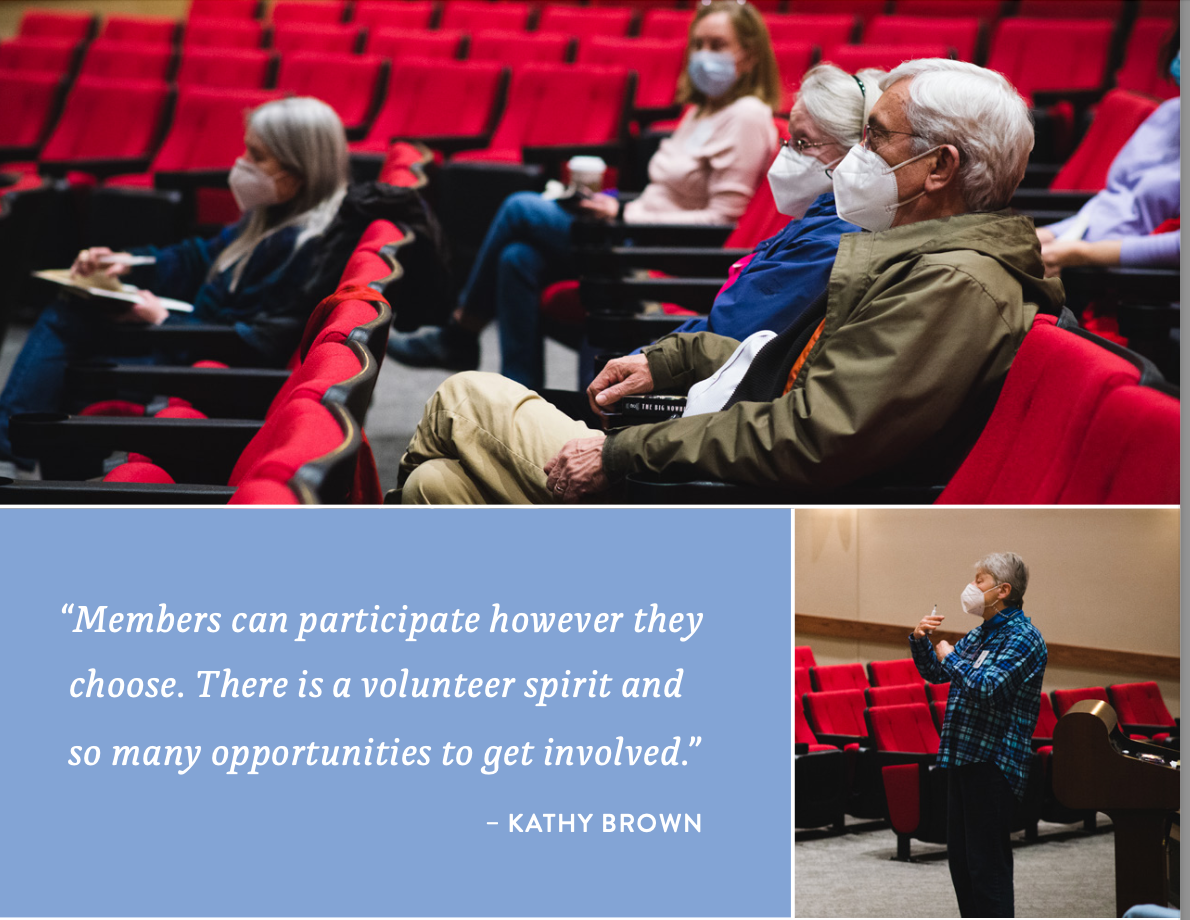
In the Fall of 2021, PLATO moved its office from UW’s Division of Continuing Studies building to Oakwood Village University Woods campus at 6209 Mineral Point Road.
The partnership with Oakwood began years ago when the facility began hosting PLATO classes and lectures, and it has continued to grow culminating now with PLATO’s new office location. Oakwood has been an extremely accommodating and welcoming “host”.
Please follow this link to see how Oakwood has described and promoted PLATO in a feature story published in its semi-annual Outlook Magazine, which is shared with Oakwood Village residents and families.
- HEDY LUKAS, PLATO MEMBERSHIP & COMMUNICATION CHAIR, 2022
Meet Dynamic Volunteer Duo - Carla and Mike DiIorio
This article was published in April 2022
 The P in PLATO stands for participatory. Without members willing to give their time and talent, there would be no PLATO. Carla and Mike DiIorio exemplify what it means to participate! This dynamic duo joined PLATO when they retired; Carla retired in 2010 and Mike in 2011. They have been volunteering ever since — Carla on the Special Events Committee and Mike on both the Technology and Special Events Committees, and the Diversity Committee for the past four years. He is responsible for organizing the popular Special Event walks in the area's county parks and Ice Age trail segments.
The P in PLATO stands for participatory. Without members willing to give their time and talent, there would be no PLATO. Carla and Mike DiIorio exemplify what it means to participate! This dynamic duo joined PLATO when they retired; Carla retired in 2010 and Mike in 2011. They have been volunteering ever since — Carla on the Special Events Committee and Mike on both the Technology and Special Events Committees, and the Diversity Committee for the past four years. He is responsible for organizing the popular Special Event walks in the area's county parks and Ice Age trail segments.
Carla, who grew up outside of Milwaukee, came to Madison to attend the University of Wisconsin and never left. She was a reference librarian for 40 years at the Madison Public Library Central Branch. "I had a friend who talked about what she did with PLATO, which excited me to join when I retired." Carla has chaired the Special Events Committee twice and is currently the Co-Chair along with Mike.
Mike was a natural for Scott Kolar to recruit to the Technology Committee. Mike has an undergraduate degree in data processing and came to UW-Madison for his graduate degree. "When I joined the Committee, Scott and the board were creating an online course catalog and membership system and would soon implement an online registrations system." He confesses to failing at retirement. After 36 years as a systems engineer for public and private enterprises, he went to MATC for a Nursing degree. Mike then worked for ten years at Sauk Prairie and the UW hospitals.
Not surprisingly, PLATO isn't the DiIorio's only volunteer activity. Both are avid gardeners and enjoy working as volunteers at Olbrich Garden. They also are involved with Friendship Force, an organization that fosters international goodwill and understanding through travel. As members of the Madison Chapter, they have hosted visitors from around the world. These two avid travelers have two COVID-postponed trips on their schedule for this year: one trip to Northern Italy and the Loire Valley and another to Tanzania. They sing with the Edgewood Chorale, are members of book groups, ride their e-bikes, and attend American Players Theater, Forward Theatre, and Madison Symphony performances if not already busy enough.
When Carla and Mike married 44 years ago, they created a blended family of three young boys. Today, twins David and Keith live in Madison and their third son, Mike, in North Carolina with his two children, Mike and Carla's grandchildren Morgan and Dylan.
"Since joining PLATO 12 and 11 years ago, we've watched the organization evolve and grow its offerings and membership. Perhaps its major accomplishment has been to survive the pandemic, thanks to a strong Executive Committee and Board!"
Carla and Mike say they look forward to continuing their volunteer involvement with PLATO.
- JANET CABOT, SPECIAL EVENTS COMMITTEE MEMBER


